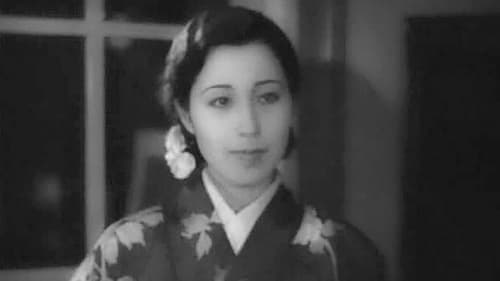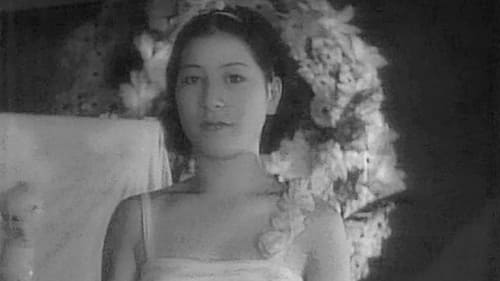Masako Tsutsumi
Nascimento : 1917-08-10, Tokyo, Japan
Morte : 1976-08-04

The title might sound shocking, but the red hands mean, the hands which drag fishnets. Ohama, 15 or 16 years old girl lost her family and lived alone in a fishermen's village. She is a strong-minded girl and very popular among young children.
I guess that this story is one of the origins of girl's manga in the 1950s in which I belonged to the first generation of Japanese story manga.

Part two of two.

Part one of two.

Japanese film based on the life of writer Ichiyo Higuchi (1872-1896).

The Woman Selling Warblers
An episodic film about life in and around a rural police station and the people it serves.

Japanese adaptation of LES MISERABLES. The last film of director Itami took inspiration from Les Miserables. Transpiring during the Southwestern War of 1877 in Japan, which was the last civil war in the country, a criminal escapes prison only to be found by a monk. The criminal decides to turn a new leaf based on their conversation and goes on to become a town's mayor. He hears news of a mistaken arrest and identity. The revelation of truth is the start of a series of miseries.

Osaki
“Widely acclaimed as the first full-scale historical film epic in Japan, Kumagai’s adaptation of Ogai Mori’s celebrated novel is an indictment of the bushido tradition of saving face through harakiri. The 19 vassals of Lord Hosokawa ask permission to commit harakiri with him, as a demonstration of their loyalty. Only Yaichiemon Abe is refused permission, forced instead into the vassalage of his lord’s successor. Humiliated and derided, Yaichiemon eventually commits harakiri without permission. His eldest son is then punished for Yaichiemon’s suicide, and when he resists, is sentenced to death. The entire Abe clan rebels upon the son’s execution, and the clan is annihilated.” --Alan Poul, Japan Society

Kayo and Kuniko graduated from girls' school together and are as close as sisters. Kuniko's fiancé, Minakami, feels something that attracts him deeply towards Kayo. On the other hand, Kayo prays for the happiness of her best friend and marries a very ordinary man. However, at one point, this mediocre but increasingly ferocious husband died in an accident ... A triangular love story develops depicting a woman's heart that sways between love and morals. Based on a novel by Nobuko Yoshiya, there were originally two parts to the film (If Spring Comes & Fall Once Again), both supposed to be 85 minutes, but apparently what we have now is this 103-minute amalgam of the two.

Japanese domestic drama.

Hikoroku Laughs a lot

Tsukiko Kure
The otherwise promising young man Asaji (Heihachirô Ôkawa) and his younger brother Yuji (Hideo Saeki) face blighted lives because of society's disapproval of their illegitmacy and déclassé family.

The first in a series of films featuring the comedy duo Entatsu-Achako, providing them with a background story to do their popular manzai-routines on film. Here, Entatsu and Achako start out as rivals for the affection of a young woman but ultimately pair up to face a bigger rival. Entatsu chooses to become a boxer to get his chance at punching the rival out of the way.

Chiyoko
The main focus is on the 5 member band of a small circus as it runs into problems while touring rural Japan. It also pays lots of attention to the two daughters of the aging and irascible ringmaster-circus owner. The high points are the sound (and score) and cinematography featuring a lot of vertiginous panning (appropriate - as high wire trapeze artists are also an important element in the film). A fascinating side-light on 30s Japan.

Oshun
Adaptation of Fumiko Hayashi's novel.

O-Some
Three sisters earn money for their bossy mother by being samisen street musicians. This means mainly playing a banjo type instrument for tips in bars...

Mariko
Enoken plays a magician real powers come from his magical hat. A jealous theater owner sends girls, then goons, to keep Enoken from performing his grand show!

Studio P.C.L. was specifically founded to make sound films, and this early musical balances the aesthetics of the sound film with those of the stage revue. The king of Tokyo’s revue stage, comedian Ken’ichi Enomoto (Enoken) had made his name in the capital’s theatrical district of Asakusa. The film employed not only the star, but his entire theatrical troupe, and the narrative was structured around scenes which Enoken had played successfully on stage. Billed as offering 'Japan’s number one comedy actor and Japan’s number one musical comedy,' the film self-consciously borrowed from Hollywood musical comedy; indeed, the original posters carried spoof endorsements by Eddie Cantor and the Marx Brothers! Director Kajiro Yamamoto, making his P.C.L. debut, would become a stalwart of the company and its successor, Toho. He was to have a profound influence on Japanese film history as mentor to Akira Kurosawa, who assisted him on a number of films including Horse (Uma, 1941).

Based on the comic by Yutaka Asou










